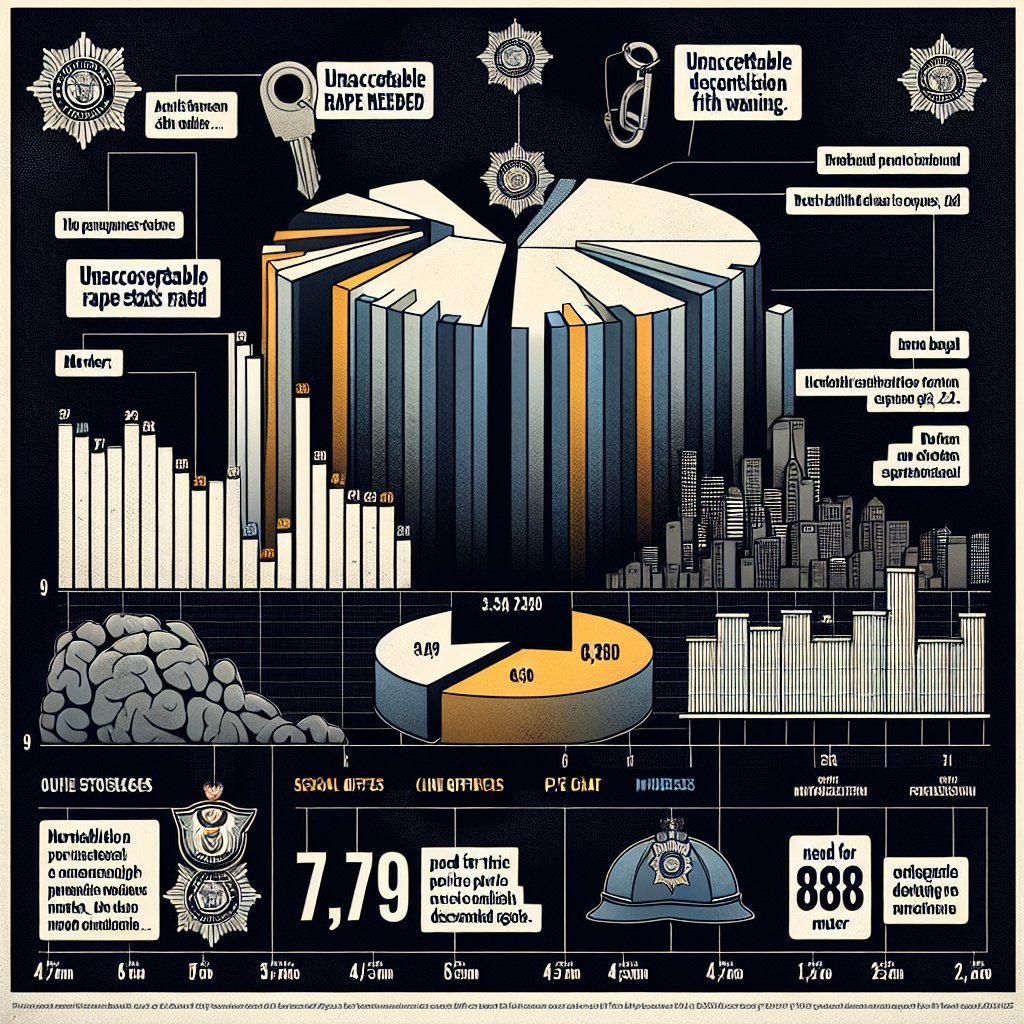Image created with AI
Crime Stats Reveal a Harsh Reality as South Africans Demand Police System Overhaul
The recent unveiling of South Africa's crime statistics has sparked a national outcry and condemnation from civil organisations and political parties. Following Police Minister Bheki Cele's presentation of the third-quarter figures, showing a small decrease in sexual offences but a disturbing rise in the murder rate, many are demanding decisive action and calling for a comprehensive reform of the South African Police Service (SAPS).
Between October 1 and December 31 last year, 12,211 rape cases were reported, a marginal fall from 12,419 in the same period of 2022. While this decline in sexual offences, including a 1.7% drop in reported rape cases, might seem promising, the reality of violence in South Africa remains grim, as the murder rate has alarmingly risen by 2.1%. The figure represents 155 lives lost, culminating in a total of 7,710 murders during the three-month period.
Amnesty International SA, ActionSA, and the Democratic Alliance (DA) have all added their voices to the chorus of disapproval, accusing the government of negligence. Specifically, Action Society claimed the government has effectively "abandoned" its people in light of the troubling statistics. Ian Cameron, director of community safety at Action Society, presented a stark image of the national situation, asserting that a woman is raped every 12 minutes in the country. Cameron also contested Minister Cele's assertion that SAPS provides high-quality service and dismissed his claim that the historic DNA backlog had been eradicated, citing the still-pending forensic investigations in the murder case of four-year-old Mia Botha.
Amnesty International South Africa highlighted the dire conditions for women, indicating that while the statistics show a decrease from 2022's numbers, rape remains unacceptably high and more must be done to hold perpetrators accountable. Shenilla Mohamed, the executive director, has made a call for a complete overhaul of SAPS, emphasizing the dire need for more thorough and transparent investigations to break the cycle of violence with impunity.
In the same vein, the DA has lambasted both Minister Cele and President Cyril Ramaphosa for the continued rise in crime, labeling them as "enemies of safety." They argue for the decentralization of policing powers to more capable provincial authorities and criticize the current administration for the underperformance and lack of staff in the detective service.
Meanwhile, ActionSA points to the crime stats as evidence that the public's faith in the police's ability to tackle crime is waning. The party insists that an immediate and comprehensive review of the policing system is essential and brands Minister Cele as a failure in his duty.
The dissonance between official statements and the lived reality of South Africans is striking. While the decrease in sexual offences could be interpreted as progress, the rise in homicides points to a society still plagued by violence. Moreover, the concern is that the slight decline in sexual offences reported may not reflect a true decline in incidence but rather a growing mistrust in the police, leading to underreporting.
As South Africa grapples with its crime crisis, these stats compel a reexamination of the effectiveness of current law enforcement strategies. It's clear that the public's patience is wearing thin and that the call for reform can no longer be ignored if the government hopes to restore trust and ensure the safety of its citizens.










